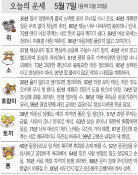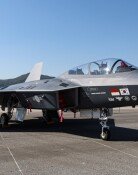Security Council Consensus on North?
Possibilities for a last-minute agreement on the United Nations Security Council (UNSC) resolution against North Korea are growing higher as the U.S. and Japan have decided to accept parts of the Chinese and Russian resolution.
Five permanent members of the UNSC and the Japanese ambassador to UNSC engaged in working out a revised resolution between Japans draft resolution imposing sanctions on North Korea and China and Russias milder draft resolution on July 13 but could not reach an agreement. However, an ambassador-level meeting was held on Friday morning, and the final resolution was to be presented to the UNSC in the afternoon (early Saturday morning, Korean time), according to the Japanese newspaper Daily Yomiuri.
The final revision is expected to delete any mentioning of U.N. Charters Chapter 7 and tone down the term threat. The Daily Yomiuri added that the expression that the UNSC will decide on UN members deterring the transfer and supply of goods and technology following North Koreas missile development is to be moderated.
The major differences in the Japan-proposed draft and Chinese draft were that Japan included in its resolution a mentioning of invoking UN Charters chapter sevens threat to international peace and security statement, as well as compulsory sanctions banning North Koreas missile and nuclear programs.
Japan has decided to delete the mentioning of the UN charter statement, and as Chinas draft included a similar proposal with Japans compulsory sanctions, the issue at hand is focusing on the section mentioning threat.
However, the Japanese press is showing conflicting judgments over this issue, and it is not yet clear if the final agreement will be made smoothly.
Asahi Shimbun reported that day that North Koreas missile launches were stipulated as a threat, and if sanctions take effect, the Japanese government will exclude the part invoking the seventh chapter of the UN Charter.
Regarding this matter, Japanese Chief Cabinet Secretary Shinzo Abe said on July 14, The Japanese government wants to adopt a resolution including binding punishments or sanctions.
Nihon Keizai Shimbun also reported that the Japanese government is demanding that the missile launches be acknowledged as a threat and expressions criticizing North Korea be included in place of excluding chapter seven.
Meanwhile, Chinas UN Ambassador, Wang Guangya, emphasized on July 13 that both the expressions invoking UN Charters chapter seven and stating the term threat cannot be accepted and showed his determination for a veto.
Japans U.N. Ambassador Kenzo Oshima said that day that the two issues have been left as difficult matters to solve up to the final moment, and each ambassador is inquiring with his country and making efforts to reach last-minute agreements.
Young-A Soh Jong sik Kong sya@donga.com kong@donga.com







